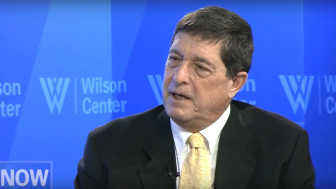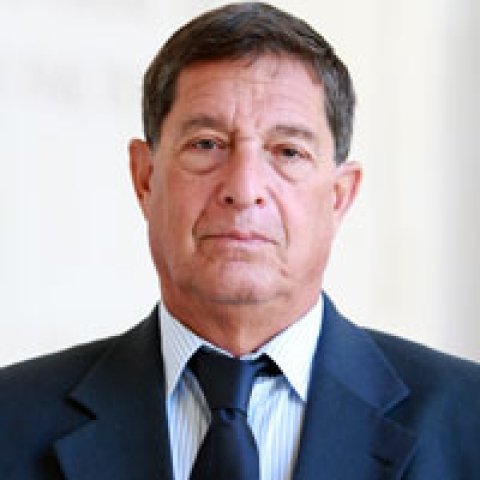Gabriel Weimann
Former Public Policy Fellow
Professional Affiliation
Professor of Communication, University of Haifa, Israel.
Expert Bio
Gabriel Weimann is a Full Professor of Communication at the Department of Communication at Haifa University, Israel. His research interests include the study of media effects, political campaigns, new media technologies and their social impact, persuasion and influence, media and public opinion, modern terrorism and the mass media. His most recent book, Terrorism in Cyberspace: The Next Generation, was based on research he conducted at the Wilson Center and was published by Woodrow Wilson Center Press and Columbia University Press in 2015. He has published many other books, including Communicating Unreality (Los Angeles: Sage Publications, 2000); The Influentials: People Who Influence People (State University of New York Press, 1995); The Theater of Terror (New York: Longman, 1994); Hate on Trial (Toronto: Mosaic, 1986); The Singaporean Enigma (Jerusalem: Tzivonim, 2001); Terror on the Internet (Washington, DC: United States Institute of Peace Press, 2006); Freedom and Terror (London: Routledge, 2011); and Social Research in Israel (Jerusalem: Tzivonim). His papers and research reports (7 monographs and more than 160 publications), have been published in scientific journals and books. He received numerous grants and awards from international foundations and was a Visiting Professor at various universities including University of Pennsylvania, Stanford University, Hofstra University, American University DC, University of Maryland, Lehigh University (USA), University of Mainz (Germany), Carleton University (Canada) and the National University of Singapore.
Wilson Center Project
"Terrorism in Cyberspace: The Next Generation"
Project Summary
Terrorist use of the Internet continues to expand and proliferate, change and evolve; an empirical study is needed to chart these changes and to update the path-breaking work that Terrorism on the Internet presented in 2006. The proposed project is based on a database collected in a 14 year long monitoring of thousands of terrorist websites. The accumulating data, findings and evidence require a meta-analysis that will answer three research questions: (a) What are the new faces of online terrorism? (b) What can be expected in the near future? and (c) How can we counter these trends? This proposal sets out to yield an updated review of the state-of-the-art in the area of terrorism and the Internet as well as a policy-relevant, practically-oriented examination of counter measures and their prices.
Major Publications
- Terrorism in Cyberspace: The Next Generation (Woodrow Wilson Center Press and Columbia University Press, 2015)
- Terror on the Internet: The New Arena, The New Challenges (United States Institute of Peace Press, 2006)
- “The Psychology of Mass-mediated Terrorism,” American Behavioral Scientist 52(1) (2008): 69-86.
- (With Abraham Kaplan) Freedom and Terror: Reason and Unreason in Politics (Routledge, 2011)
Previous Terms
September 2013-May 2014
Insight & Analysis by Gabriel Weimann
- Publication
- Cybersecurity
Going Darker? The Challenge of Dark Net Terrorism
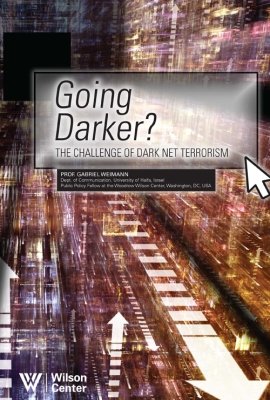
- Video
- Cybersecurity
Pulling Back the Curtain on the Dark Net

- Video
- Cybersecurity
Terrorism in Cyberspace: The Next Generation

- Book
- Cybersecurity
Terrorism in Cyberspace: The Next Generation
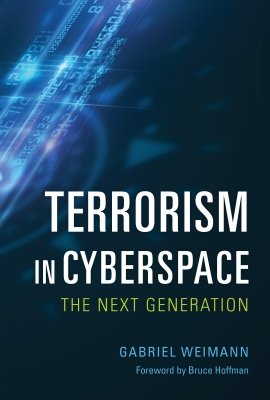
- Past event
- Cybersecurity
New Terrorism Meets New Media

- Publication
- Cybersecurity
New Terrorism and New Media
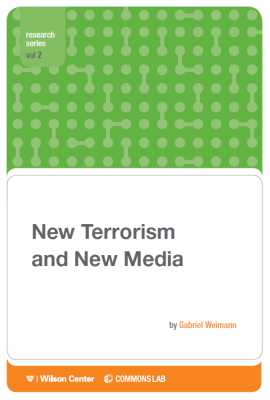
- Article
- Security and Defense
Virtual Packs of Lone Wolves

- Video
- Security and Defense
Lone Wolf Terrorists
